
According to Brad Sugars, this is how entrepreneurs should build a successful brand
By Jim James, Founder EASTWEST PR and Host of The UnNoticed Entrepreneur.
Brad Sugars was voted as one of the world’s top coaches. He has authored over 16 books, and he got 1,100 offices for the ActionCOACH business franchise. He’s also a father of five.
In the new episode of The UnNoticed Entrepreneur, he talked about how he built his amazing franchise business and how he managed to keep not just one but two brands going — the Brad Sugars brand and ActionCOACH — along with multiple other businesses.
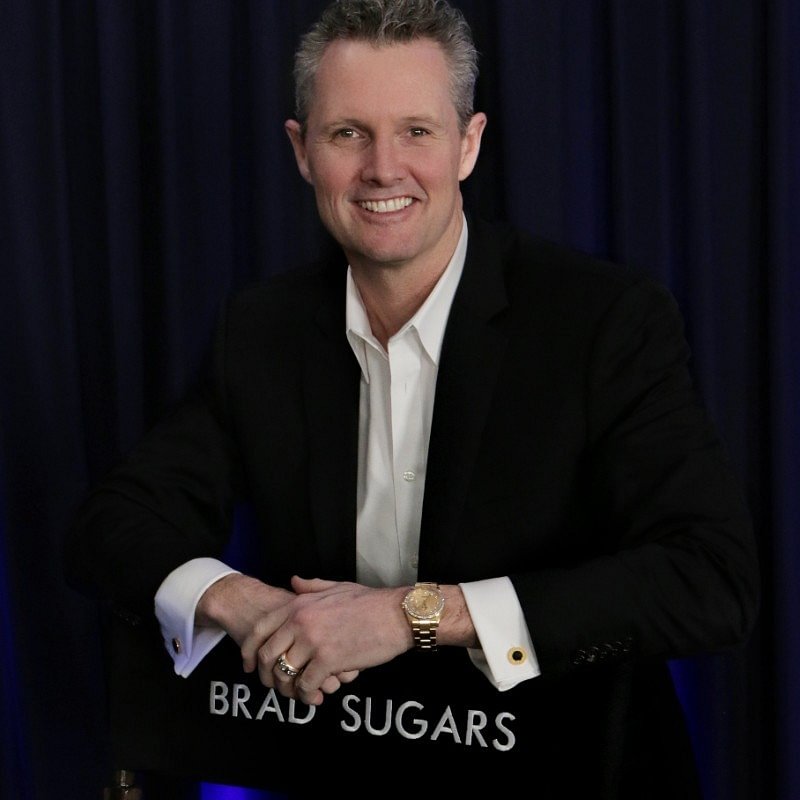
Image from LinkedIn
Three Keys to Building a Brand
For Brad, there are three major things to building a brand.
One is that he’s always recruited the best of the best. He’d never try and recruit people to his team that he didn't think would add value to the team in a massive way. He loves the word “recruit” because it means he goes out and hunts for the right people.
Second, he’s never shied away from a stage. In the early days, he did more than 200 events a year. He was on stage everywhere.
Third, he’s partnered with the right people. Back in the day, he partnered with newspaper groups, magazines, radio station groups, and chambers of commerce. And he gave his services for free to put him in front of massive audiences. In those years, just a newspaper group in Australia put him in front of 288,000 business owners.
If entrepreneurs want to be out there, they got to be out there. There's no other way to put it. If they want to get noticed, they got to do something noticeable. In his case, he was giving free events back when free events didn’t count.
Now, in today's world — with YouTube, Google, and everything — it's very hard to make free events work because everything's free online. But what he points out is that entrepreneurs got to do things to get noticed.
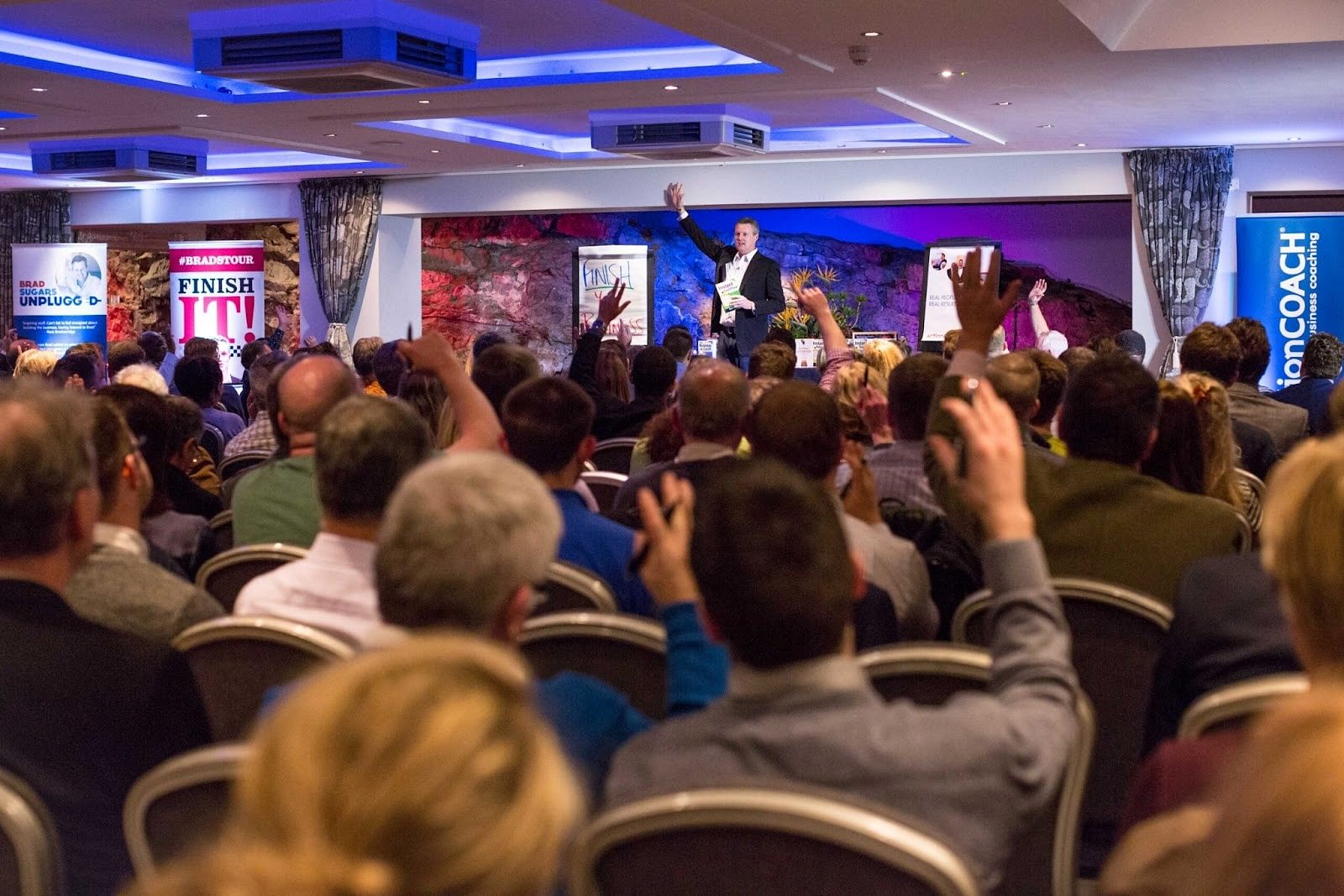
Image from ActionCOACH
His latest book is called “Raise Your Hand Marketing” because when he does something, he asks his audiences to raise their hands.
For example, he tells them to let him know if they want a copy of his material. He tells them to type “webinar” in the comments section if they want to get a link. He wants them to acknowledge, put their hands up, and say, “I'm ready to be a part of what you do.”
The biggest thing is if entrepreneurs are going to be out there, they have to be out there. Great brands and people will always be out there and, also, have the greatest partners. After all, business is a team sport.
Getting in the Door
Brad kicked off ActionCOACH in August 1993, and this August will be their 30th birthday. Now, his franchise has some 1,100 coaches around the world. But how did he do that?
When entrepreneurs partner with any company, they must look at their need, want, and desire.
For example, they at ActionCOACH work with a lot of accountants around the world.
If they would go to these accountants and ask them to be introduced to their customer base, no accountant would want to do that. They don't care about that. What does the accountant care about? More billings and more hourly rates. They want to make more money.
So if they would go to them and tell them they can show how to get twice as many hours of work per client they have right now, they’d be interested. Because if they want to go in and help them grow their business, they need more of an accounting-type of offering.
They have to put these accountants’ best interests first. They have to get in the door. And Brad considers getting in the door one of his specialities.
He likes using lumpy mail marketing. In his first-ever lumpy mail strategy, he bought the right arm off a bunch of mannequins (his brother Craig did it for him). They got a big piece of wood and mounted them on it and had a brass plate engraved to serve as his business card. They’d send it in a box to leads, and it said, “I’d give my right arm for an hour of your time.”
He did things like that, and those got him noticed and got him in front of people.

![]()
Image from Freepik
He also had a marketing campaign where he stuck an actual bandaid to the outside of the envelope. The headline on there was a handwriting of “Stop the bandaid solutions to your business.” He has also sent invitations to people on a silver platter. He literally put a silver platter in the envelope with the invitation.
Doing this sort of thing and getting in the door is step one. Sadly, people are so lazy trying to get in the door: They simply send a note or a LinkedIn message.
However, if entrepreneurs really want to get to see someone do something, they must learn that someone’s favourite thing.
For example, Brad is a rum drinker. If anyone finds him a great bottle of rum from around the world and sends that and says something along the lines of “Hey, Brad I bought you this bottle of rum. I'd just like 20 minutes of your time just to chat about what we do in business” — there's nowhere in the world he’s turning that down.
He also used to send bars of soap with the old saying, “If you don't know me from a bar of soap, we'd send a piece of wood with a hole in it. You don't know me from a hole in the wall.”
Another campaign for one of his companies (a commercial cleaning business) involved guys doing door-knocking. They got their business card made, which was an A3 size. And when they walk into a receptionist and ask if they could give that card to their boss and say that they’d like to have a quick chat with them, the receptionist would be confused at first, but they would get up.
A Three-Point Strategy for ActionCOACH
There are three main keys to getting the ActionCOACH franchise noticed and perceived as valuable.
One, know that people don't buy a franchise, they join a team. They’re joining a movement. They’re joining something. In ActionCOACH’s case, their vision is “World Abundance through Business Re-Education”, and at their heart is the “14-points of Culture.”
If entrepreneurs are building a team, who their people are and why they do what they do are more important than what they do. Entrepreneurs must recruit based on “who” and “why.” And recruiting franchisees is no different from recruiting team members. It’s all about recruiting — being proactive and having people join a team and a leader.
When someone's buying a franchise or investing (“investing” is another word he likes because ROI or return on investment is more important than anything), entrepreneurs have to look at their dreams and goals. And their business has to help their dreams and goals become a reality.
Most people who join Brad’s team are passionate about helping people. Their methodology is to take their 10, 20, or 30 years of business experience and give back. Yes, they will make a lot of good money by running the business, but they also get to give back.
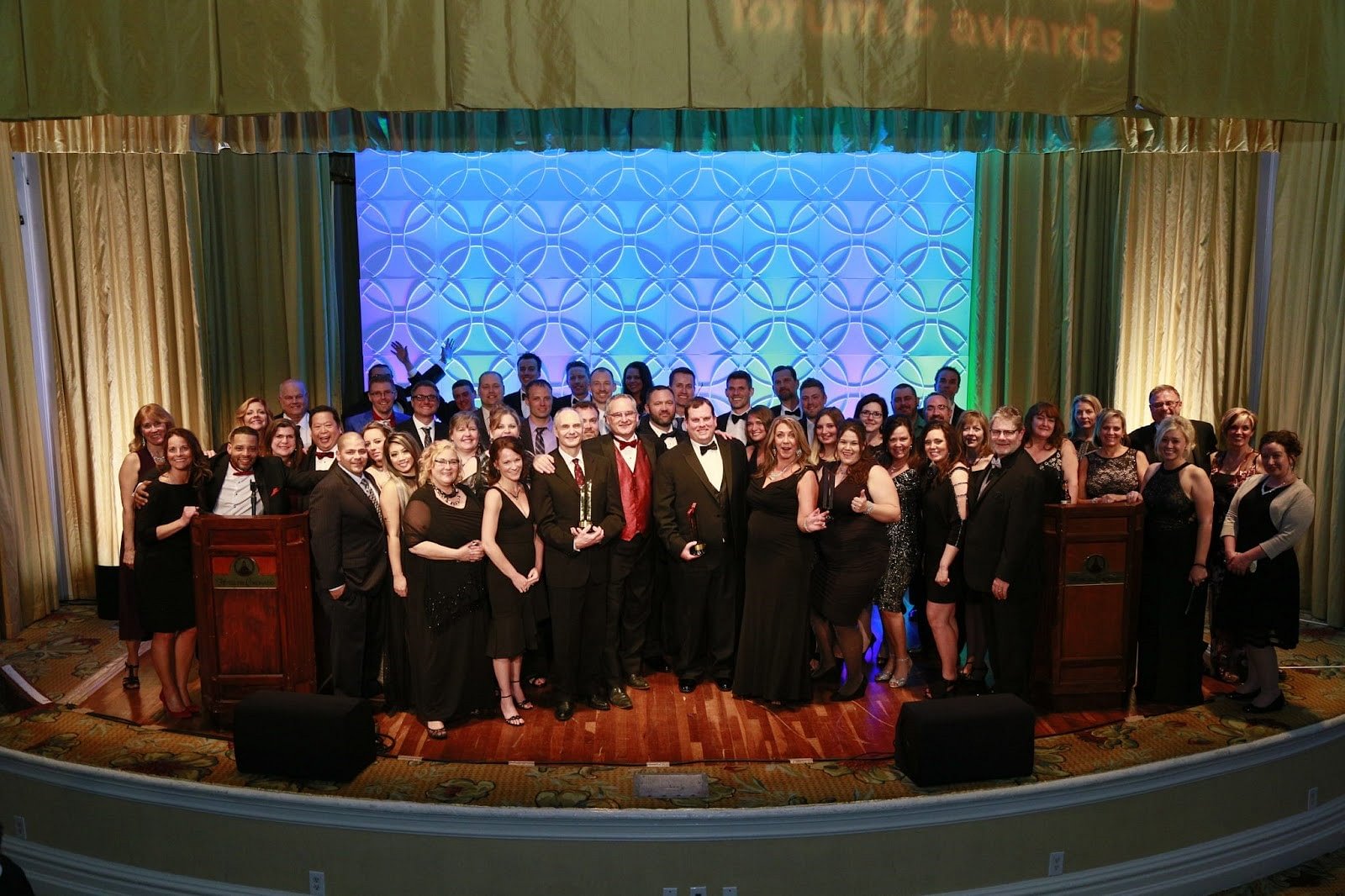
Image from ActionCOACH
The second part of the strategy is marketing.
Entrepreneurs have to do great marketing. They have to be everywhere and do everything. For instance, ActionCOACH recently launched their TV show “Business As Unusual” in the UK on Amazon Prime.
Entrepreneurs got to do all of those things and invest in them. Because marketing is an investment if they do it right.
When Brad wrote his book “Buying Customers” around 12 years ago, people asked what he meant by buying customers. Well, if someone invests $1,000 and gets ten customers, it means it costs them $100 to buy each. So entrepreneurs must ask: How many customers do they need to buy? What amount of money are they allocating to buy them — and does that add up?
If they want 100 customers and are only investing $1,000 — and it costs them $100 to buy each one — then they won’t get the number of customers they’re trying to buy.
The third thing in franchising is the success of the actual product: the franchise. The franchisees have to succeed.
A 10-year running franchisees' satisfaction survey by an outside firm shows that ActionCOACH is in the Top 50 for franchisee satisfaction worldwide. They're in the Hall of Fame for that. Also, at ActionCOACH, they refer to their franchisees as franchise partners. They are their partners in business.
How to Attract and Keep Franchisees
Entrepreneurs looking to attract franchisees must get those franchisees to love the business and the leader.
As a coaching business, ActionCOACH believes that franchisees and their customers come to them for four things: community, accountability, education, and results.
- Community. They have built and given them a community. Franchisees might join for the business opportunity but will stay for that community and camaraderie among their peers.
- Accountability. Most people’s goal in life is to pay the bills and make wages. At ActionCOACH, they aim to give franchisees accountability for their dreams and goals.
- Education. If entrepreneurs could bring franchisees the best education they can't get in other places, it obviously changes how they respond to them.
- Results. Results come from these three other things.
A Niche or Not a Niche?
ActionCOACH has been sort of running counter to the theory of “riches are in the niches” because they are not doing a particular kind of coaching for a particular sector.
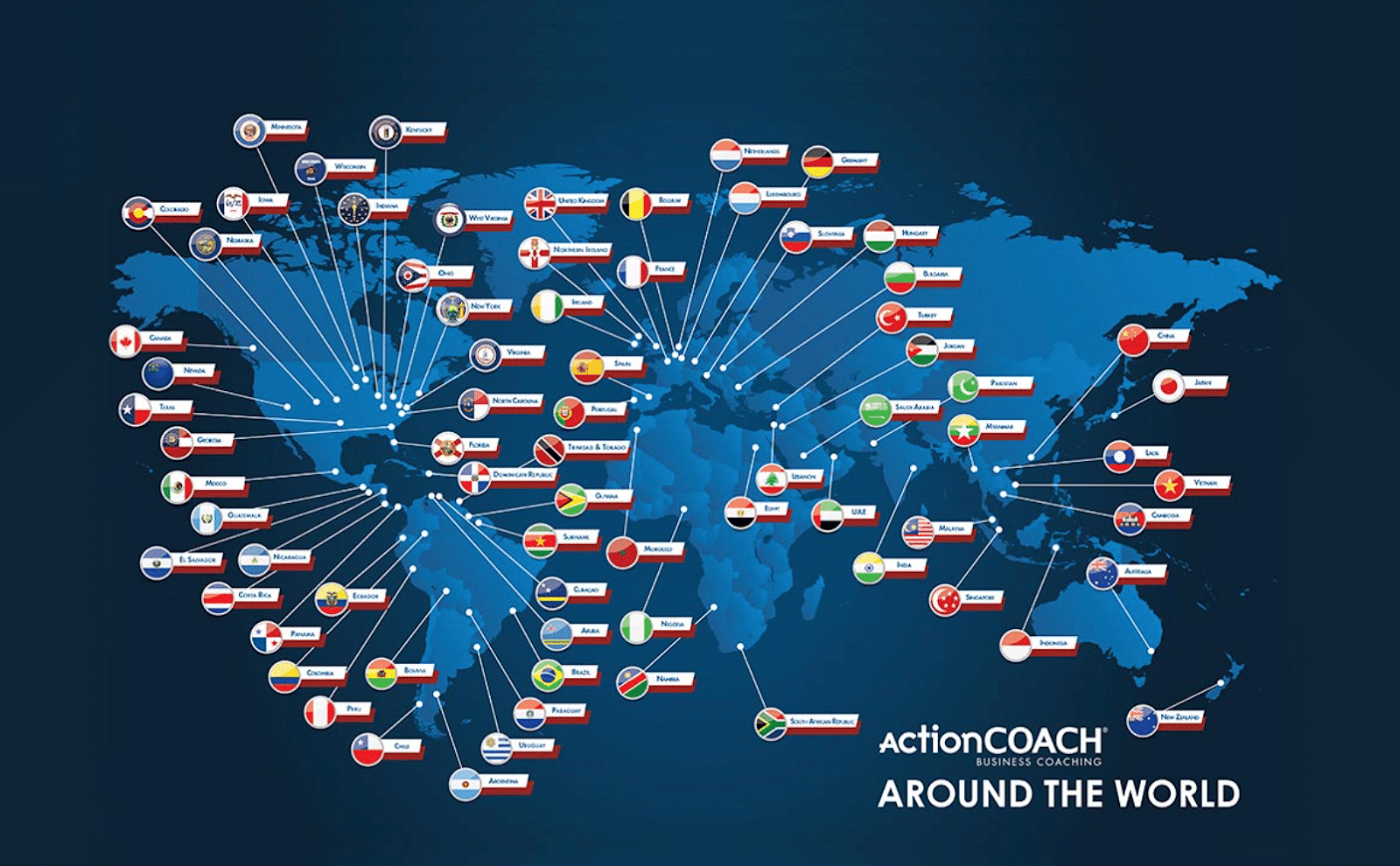
Image from ActionCOACH
To clarify: It’s the small businesses and the niches they go after because all the big consulting companies go for 50- or 500-plus employees.
Who's going for the person with no employees? Who's going for the people with less than 50 employees and less than $5 million in revenue a year? The answer is nobody on a worldwide scale.
So, maybe, they are in a niche. Or, maybe, they’re breaking the rule. Because, in fact, their marketing is done by niching. Their marketing to tradespeople is very different from their marketing to doctors. And they’re very different from marketing to accountants, attorneys, and other professions.
So, maybe, they don’t break the rule. They’re just doing it in a different way.
Looking at his other business, he has a marketing services firm based out of London, where they only work with accountants, lawyers, and business coaching firms. He bought half of the company because they were doing great results with his team. And in that business, they are very clear on who they work with.
In that sense, they might be breaking the rule or just using the rule to their advantage. It’s a debate worthy of another podcast episode.
But from a marketing perspective, Brad loves being very niche-oriented. Because location or locality is also a niche, and their franchisees operate in a territory of about 10,000 businesses. Hence, those franchisees’ town or home base can also be considered a niche.
Brad is a believer in the Disneyfication of businesses. If he has a set of intellectual properties, he thinks of how many ways he can sell that. He can sell it with a hat, a water bottle, or a mug. Other entrepreneurs do the same: They have podcasts, blogs, and books.
It shows how there are a lot of ways to sell the same thing to different niches. Some people love podcasts; some love books. There are different ways to hit different target audiences.
Managing a Multi-Brand Approach
Originally, there was no logic to him having the Brad Sugars brand and his business’ brand. He was just doing seminars himself, and he didn’t have ActionCOACH then.
About four years since he started the business, he began to shelf his personal brand and went under the ActionCOACH brand. Over the years, he noticed that the ActionCOACH brand grew with Gen Xers and boomers. The millennials didn’t relate to the brand as well.
Back then, they could fully rebrand and start moving to the millennial and Gen Z market or stay with a strong brand that hits their target audience. That was when he reinvigorated the Brad Sugars brand.
As an entrepreneur, he can say things that he can’t as his company's Chief Executive Officer (CEO). Because as a CEO, he has to represent the company in a certain way and do certain things for their value and stakeholders who want a certain way of doing things.
With the Brad Sugars brand, he can do things another way — similar to what Elon Musk is doing for the Elon Musk, Tesla, and SpaceX brands.
Also, the brand promise of ActionCOACH differs from the brand promise of Brad Sugars. The latter is in business, wealth, and life skills, whereas the former is a business brand. And he had to invest time, energy, and effort to build a different brand.
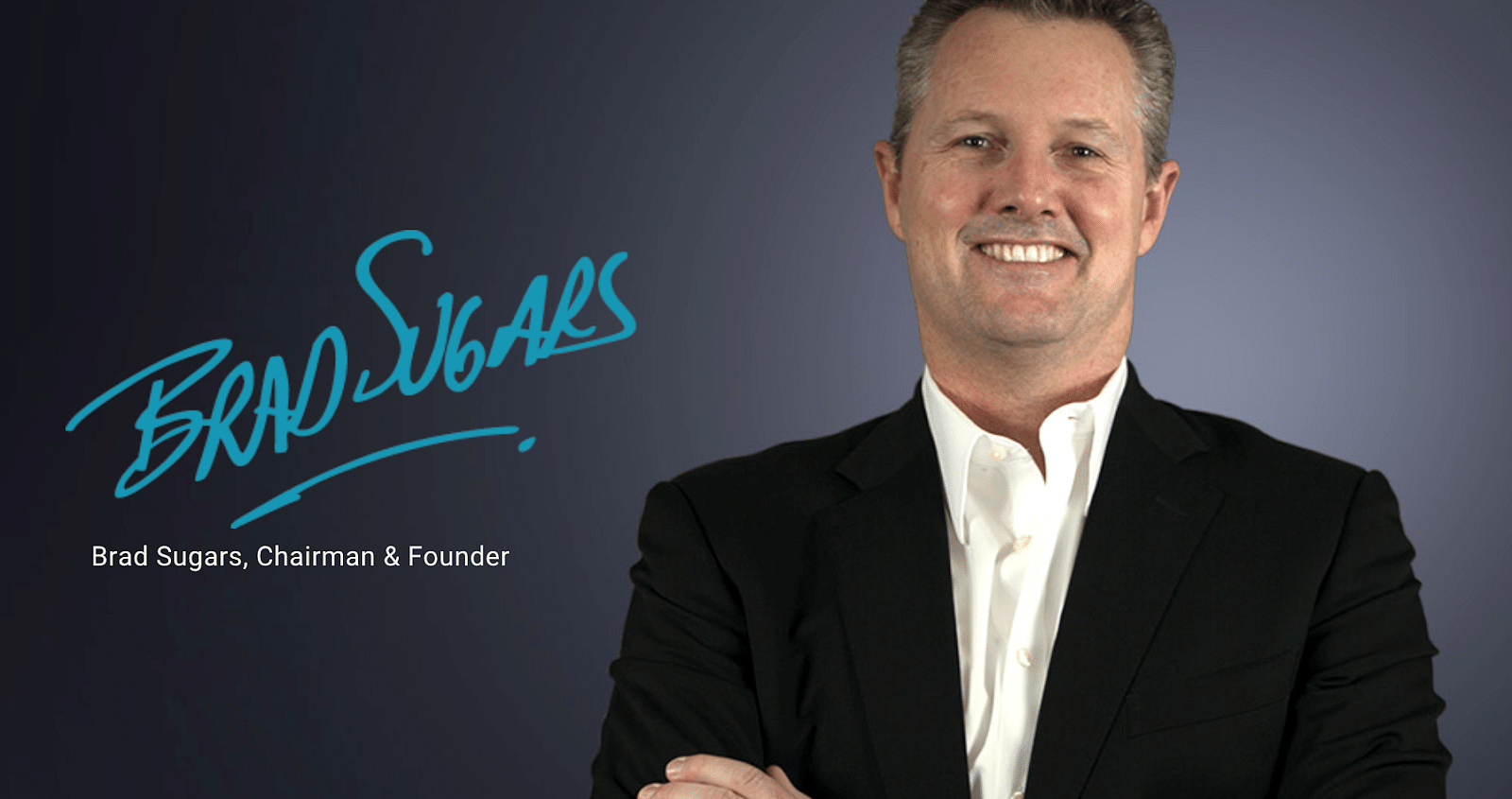
Image from ActionCOACH
When talking about entrepreneurs who aren’t ready to sustain the duality of brands, Brad always goes back to his definition of business: a commercially profitable enterprise that works without him.
If an entrepreneur is still needed on a day-to-day basis to run his business, then he shouldn’t have that duality of brands. Entrepreneurs can't move to that second brand or even a second business for that matter.
Brad has built a lot of other brands. He has a commercial cleaning business, he has restaurants, and he has catering companies. And he built those brands separately and distinct from himself.
He does love the idea that all businesses should have a figurehead and a voice. When he looks at Tim Cook of Apple, though he’s nowhere near as exciting as Steve Jobs was on stage, he's still the figurehead; he's still the go-to person.
As entrepreneurs learn to build other brands, having their own brand at some point is necessary.
As an entrepreneur, one thing that allows him to buy companies is that he doesn't have to pay as much — because the companies he’s buying think that he’s going to add so much value to their organisation. They see him as a partner more than how he wants their money. In the case of venture capital companies he talks with, they pay more for companies because those companies don't see the value they’re going to add.
Raise Your Hand Marketing
Brad’s advice for getting noticed is for entrepreneurs to ask people to raise their hands all the time. They must never do any marketing where they are looking for likes and followers. Instead, they must ask people so they can get them to be interested.
For example, once Brad’s podcast episode is released, he plans to put up a picture and say something like this: “You won't believe the second question Jim asked me. And the answer I gave was stuff that I've never really taught in business or in seminars. If you'd like a copy of the podcast, type the word 'podcast' below.”
Doing that will prompt someone to get into a conversation. And conversations precede conversions. In today's world, if businesses generate more conversations, they will do better.
The other thing is that entrepreneurs’ businesses cannot outgrow them. The more they learn, the more they earn. If they stop learning, then their business is going to stop growing.
To learn more about Brad Sugars, visit https://bradsugars.com. Find out more about ActionCOACH at https://www.actioncoach.com.
The UnNoticed Entrepreneur podcast is sponsored by Prowly, the all-in-one software for leveraging PR activities. Boost the media relations game for your business - get more coverage while saving time and money on everyday tasks.
This article is based on a transcript from my podcast The UnNoticed Entrepreneur, you can listen here.
Cover image by wirestock on Freepik
If you are building a business and wonder how to generate a good brand name, you will want to try this the AI powered Name Generator by Squad Help. The link is here


